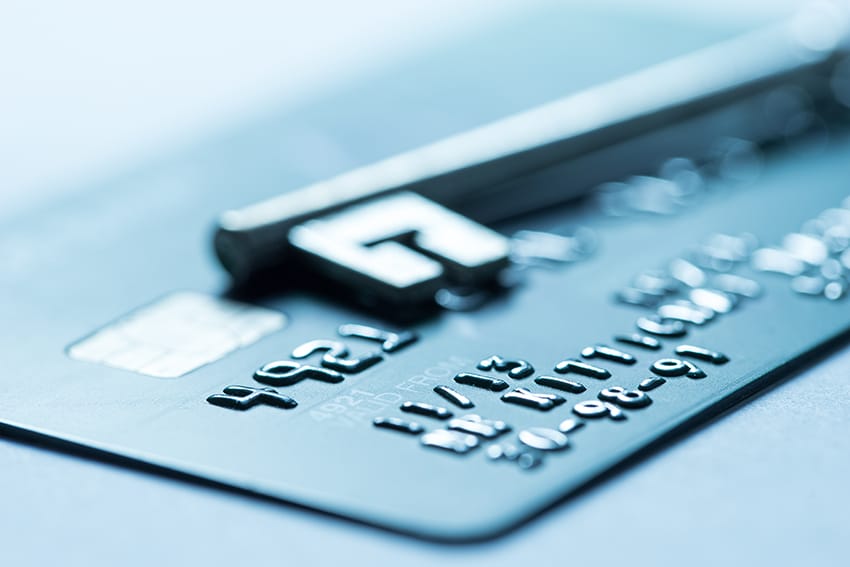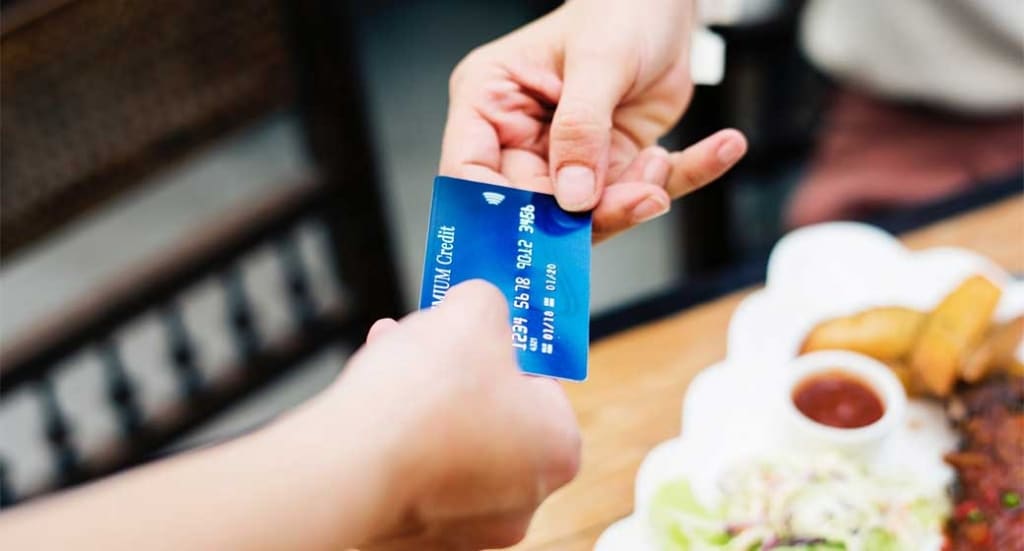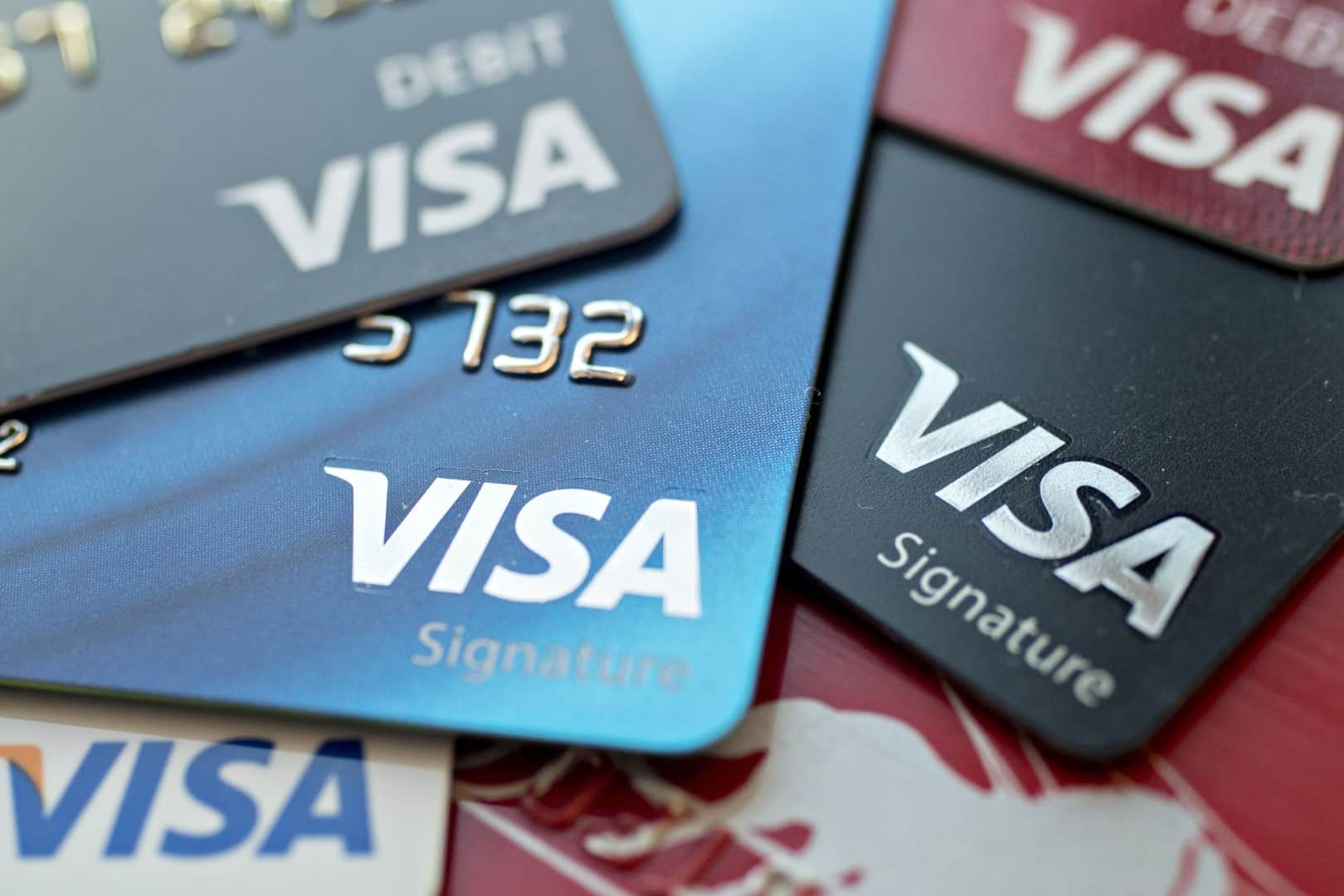If you accept credit and debit cards, you most likely accept Visa. Being the most popular card worldwide, you would be remiss not to. Visa’s rates are available here to the public, but since they can be somewhat confusing we’ll go over them in this article.
Visa has eight categories for interchange rates: Consumer Check Card, Consumer Prepaid, Consumer Credit, Corporate and Purchasing, Corporate and Purchasing Prepaid, Business, Other, and International.
Visa USA Consumer Check Card
Visa divides their debit interchange program into two categories: Card present and card not present transactions. Then, it further divides cards into “Exempt” and “Regulated” categories from there. The difference between regulated and exempt debit is the amount of money the issuing bank has in assets. If the issuing bank has more than $10 billion in assets, the debit card is considered “regulated,” and if the issuing bank has less than $10 billion on assets, the debit card “unregulated,” or exempt.
The card-present rates are in the table below:
| Fee Program |
Exempt Visa Check Card |
Regulated Visa Check Card |
| CPS/Supermarket, Debit |
$0.30 |
0.05% + $0.21 |
| CPS/Retail, Debit |
0.80% + $0.15 |
0.05% + $0.21 |
| SPS/Automated Fuel Dispenser (AFD), Debit |
0.80% + $0.15 |
0.05% + $0.21 |
| CPS/Service Station, Debit |
0.80% + $0.15 ($0.95 Cap) |
0.05% + $0.21 |
| CPS/Small Ticket, Debit |
1.55% + $0.04 |
0.05% + $0.21 |
| CPS/Restaurant, Debit |
1.19% + $0.10 |
0.05% + $0.21 |
| CPS/Hotel and Car Rental, Debit |
1.19% + $0.15 |
0.05% + $0.21 |
| Travel Service, Debit |
1.19% + $0.10 |
0.05% + $0.21 |
| CPS/Retail Key Entry, Debit |
1.65% + $0.15 |
0.05% + $0.21 |
Card-not-present rates:
| Fee Program |
Exempt Visa Check Card |
Regulated Visa Check Card |
| CPS/Retail 2 – Card Not Present, Debit |
0.65% + $0.15 ($2.00 Cap) |
0.05% + $0.21 |
| CPS/Debt Repayment 2 |
0.65% + $0.15 ($2.00 Cap) |
0.05% + $0.21 |
| CPS/Debt Repayment (No Fee) |
0.65% + $0.15 ($0.65 Cap) |
0.05% + $0.21 |
| CPS/Utility |
$0.65 |
0.05% + $0.21 |
| CPS/Government |
0.65% + $0.15 ($2.00 Cap) |
0.05% + $0.21 |
| CPS/Card Not Present, Debit |
1.65% + $0.15 |
0.05% + $0.21 |
| CPS/e-Commerce Basic, Debit |
1.65% + $0.15 |
0.05% + $0.21 |
| CPS/e-Commerce Preferred Retail, Debit |
1.60% + $0.15 |
0.05% + $0.21 |
| CPS/Preferred Hotel and Car Rental, Debit |
1.70% + $0.15 |
0.05% + $0.21 |
| CPS/Preferred Passenger Transport, Debit |
1.70% + $0.15 |
0.05% + $0.21 |
| CPS/Accounting Funding |
1.75% + $0.20 |
0.05% + $0.21 |
| Electronic Interchange Reimbursement Fee (EIRF), Debit |
1.75% + $0.20 |
0.05% + $0.21 |
| Standard Interchange Reimbursement Fee, Debit |
1.90% + $0.25 |
0.05% + $0.21 |
Visa USA Consumer Prepaid
Similar to the consumer check card, the consumer prepaid is also divided into exempt and regulated cards, and card-present and card-not-present transactions. The following table shows the card-present Visa interchange rates for the consumer prepaid card:
| Fee Program |
Exempt Visa Check Card |
Regulated Visa Check Card |
| CPS/Supermarket, Prepaid |
1.15% + $0.15 ($0.35 Cap) |
0.05% + $0.21 |
| CPS/Retail, Prepaid |
1.15% + $0.15 |
0.05% + $0.21 |
| SPS/Automated Fuel Dispenser (AFD), Prepaid |
01.15% + $0.15 ($0.95) |
0.05% + $0.21 |
| CPS/Service Station, Prepaid |
1.15% + $0.15 ($0.95 Cap) |
0.05% + $0.21 |
| CPS/Small Ticket, Prepaid |
1.60% + $0.05 |
0.05% + $0.21 |
| CPS/Restaurant, Prepaid |
1.15% + $0.15 |
0.05% + $0.21 |
| CPS/Hotel and Car Rental, Prepaid |
1.15% + $0.15 |
0.05% + $0.21 |
| Travel Service, Prepaid |
1.15% + $0.15 |
0.05% + $0.21 |
| CPS/Retail Key Entry, Prepaid |
1.75% + $0.20 |
0.05% + $0.21 |
Additionally, the following table shows the card-not-present rates for the Visa consumer prepaid card:
| Fee Program |
Exempt Visa Check Card |
Regulated Visa Check Card |
| CPS/Retail 2 – Card Not Present, Prepaid |
0.65% + $0.15 ($2.00 Cap) |
0.05% + $0.21 |
| CPS/Debt Repayment 2 |
0.65% + $0.15 ($2.00 Cap) |
0.05% + $0.21 |
| CPS/Debt Repayment (No Fee) |
0.65% + $0.15 ($0.65 Cap) |
0.05% + $0.21 |
| CPS/Utility, Prepaid |
$0.65 |
0.05% + $0.21 |
| CPS/Government, Prepaid |
0.65% + $0.15 ($2.00 Cap) |
0.05% + $0.21 |
| CPS/Card Not Present, Prepaid |
1.75% + $0.20 |
0.05% + $0.21 |
| CPS/e-Commerce Basic, Prepaid |
1.75% + $0.20 |
0.05% + $0.21 |
| CPS/e-Commerce Preferred Retail, Prepaid |
1.75% + $0.20 |
0.05% + $0.21 |
| CPS/e-Commerce Preferred Hotel and Car Rental, Prepaid |
1.75% + $0.20 |
0.05% + $0.21 |
| CPS/e-Commerce Preferred Passenger Transport, Prepaid |
1.75% + $0.20 |
0.05% + $0.21 |
| CPS/Accounting Funding, Prepaid |
1.80% + $0.20 |
0.05% + $0.21 |
| Electronic Interchange Reimbursement Fee (EIRF), Prepaid |
1.80% + $0.20 |
0.05% + $0.21 |
| Standard Interchange Reimbursement Fee, Prepaid |
1.90% + $0.25 |
0.05% + $0.21 |
Visa USA Consumer Credit
Visa’s Consumer Credit program’s interchange rates are dependent upon the industry in which the purchase is being made and the type of Visa card used. For example, a purchase made in a supermarket with the Visa Signature Preferred card would have an interchange rate of 2.10% + $0.10, while if that same supermarket purchase was made with a Traditional Rewards card the rate would be 1.65% + $0.10.
| Fee Program |
Visa Signature Preferred/Visa Infinite |
Visa Signature/Visa Infinite |
Traditional Rewards |
All Other Products |
| CPS/Supermarket Credit – Performance Threshold I |
2.10% + $0.10 |
CPS/Rewards 1 – 1.65% + $0.10 |
1.15% + $0.05 |
| CPS/Supermarket Credit – Performance Threshold II |
1.20% + $0.05 |
| CPS/Supermarket Credit – Performance Threshold III |
1.22 + $0.05 |
| CPS/Supermarket Credit – All Other |
1.65% + $0.10 |
1.22% + $0.05 |
| CPS Retail Credit – Performance Threshold I |
CPS/Rewards 1 – 1.65% + $0.10 |
1.43% + $0.10 |
| CPS Retail Credit – Performance Threshold II |
1.47% + $0.10 |
| CPS Retail Credit – Performance Threshold III |
1.51% + $0.10 |
| CPS Retail Credit – All Other |
CPS/Rewards 1 – 1.65% + $0.10 |
1.51% + $0.10 |
| CPS/Small Ticket |
1.65% + $0.04 |
| CPS/Retail 2 |
2.40% + $0.10 |
1.43% + $0.05 |
| CPS/Recurring Payments, MCCs 4814 and 4899 |
2.40% + $0.10 |
1.43% + $0.05 |
| CPS/Charity and Religious Organizations |
1.35% + $0.05 |
| CPS/Government |
1.35% + $0.05 |
| CPS/Automated Fuel Dispenser (AFD) |
1.15% + $0.25 ($1.10 Cap) |
| CPS/Service Station |
1.15% + $0.25 ($1.10 Cap) |
| CPS/Utility |
$0.75 |
| CPS/Retail Key Entry |
2.10% + $0.10 |
CPS/Rewards 2 – 1.95% + $0.10 |
1.80% + $0.10 |
| CPS/Card Not Present |
2.40% + $0.10 (Except for B2B which receives 2.10% + $0.10) |
| CPS/e-Commerce Basic |
| CPS/e-Commerce Preferred Retail |
1.80% + $0.10 |
| CPS/e-Commerce Preferred Hotel and Car Rental |
2.40% + $0.10 |
EIRF 2.30% + $0.10 |
CPS/Rewards 2 – 1.95% + $0.10 |
1.54% + $0.10 |
| CPS/e-Commerce Preferred Passenger Transport |
1.70% + $0.10 |
| CPS/Hotel and Car Rental Card Present |
1.54% + $0.10 |
| CPS/Hotel and Car Rental Card Not Present |
1.54% + $0.10 |
| CPS/Passenger Transport |
1.70% + $0.10 |
| CPS/Restaurant |
1.54% + $0.10 |
| CPS/Account Funding |
2.14% + $0.10 |
| Electronic Interchange Reimbursement Fee (EIRF) |
2.40% + $0.10 |
2.30% + $0.10 |
| Standard Interchange Reimbursement Fee |
2.95% + $0.10 |
2.70% + $0.10 |
Visa USA Corporate and Purchasing
The interchange rate for Visa’s Corporate and Purchasing program is dependent on whether the transaction belongs to the Commercial fee program or Government fee program, as shown in the following table:
| Fee Program |
Purchasing & Corporate T&E |
| Commercial Level III |
1.90% + $0.10 |
| Commercial Level II – Fuel |
2.05% + $0.10 |
| Commercial Level II |
2.50% + $0.10 |
| Commercial Card Present |
2.50% + $0.10 |
| Commercial Travel Service |
2.65% + $0.10 |
| Commercial Card Not Present |
2.70% + $0.10 |
| Commercial Standard Interchange Reimbursement Fee |
2.95% + $0.10 |
| Commercial Product Large Ticket |
1.45% + $35.00 |
| Fee Program |
Purchasing Only |
| Government to Government (G2G) |
1.65% + $0.10 |
| GSA Large Ticket |
1.20% + $39.00 |
Further, there is also an interchange rate that applies to STP, or Straight Through Processing:
| Straight Through Processing (STP) Fee Program |
Applicable Interchange Rate |
| Tier 1 – Less than $7000 |
2.00% + $0.10 |
| Tier 2 – $7,000 – $14,999.99 |
1.30% + $35.00 |
| Tier 3 – $15,000 – $49,999.99 |
1.10% + $35.00 |
| Tier 4 – $50,000 – $99,999.99 |
0.95% + $35.00 |
| Tier 5 – $100,000 and greater |
0.80% + $35.00 |
Lastly, the Large Purchase Advantage Fee Program also applies to the Corporate and Purchasing card:
| Visa Large Purchase Advantage Fee Program |
Applicable Interchange Rate |
| Card Present Transactions |
| All Ticket Sizes |
Visa Purchasing Card Rates Apply |
| Card Not Present Transactions |
| $10,000 or less |
Visa Purchasing Card Rates Apply |
| $10,000.01 – $25,000 |
0.70% + $49.50 |
| $25,000.01 – $100,000 |
0.60% + $52.50 |
| $100,000.01 – $500,000 |
0.50% + $55.50 |
| Greater than $500,000 |
0.40% + $58.50 |
Visa USA Corporate and Purchasing Prepaid
The Corporate and Purchasing Prepaid interchange rate is subject to five fee programs and whether the card is an exempt corporate prepaid, an exempt purchasing prepaid, or a regulated commercial prepaid:
| Fee Program |
Exempt Visa Corporate Prepaid/Visa Business |
Exempt Visa Purchasing Prepaid |
Regulated Visa Commercial Prepaid |
| Standard |
2.95% + $0.10 |
2.95% + $0.10 |
0.05% + $0.21 |
| Card Present |
2.15% + $0.10 |
2.15% + $0.10 |
0.05% + $0.21 |
| Card Not Present |
2.65% + $0.10 |
2.65% + $0.10 |
0.05% + $0.21 |
| Visa Purchasing Prepaid Large Ticket |
N/A |
1.45% + $35.00 |
0.05% + $0.21 |
| Business Utilities (Visa Business Prepaid Only) |
$1.50 |
N/A |
0.05% + $0.21 |
Visa USA Business (Excluding Prepaid)
The Business Credit Fee Program interchange rate is dependent on the spending tier, as shown in the table below:
| Business Credit Fee Program |
Business Credit Spend Tier 1 |
Business Credit Spend Tier II |
Business Credit Spent Tier III |
Business Credit Spend Tier IV |
| Business Level II |
2.05% + $0.10 |
2.05% + $0.10 |
2.05% + $0.10 |
2.20% + $0.10 |
| Business Business-to-Business |
2.10% + $0.10 |
2.25% + $0.10 |
2.40% + $0.10 |
2.50% + $0.10 |
| Business Retail |
2.20% + $0.10 |
2.30% + $0.10 |
2.40% + $0.10 |
2.50% + $0.10 |
| Business Card Not Present |
2.25% + $0.10 |
2.45% + $0.15 |
2.60% + $0.20 |
2.70% + $0.20 |
| Business Electronic Interchange Reimbursement Fee (EIRF) |
2.40% + $0.10 |
2.75% + $0.15 |
2.85% + $0.20 |
2.95% + $0.20 |
| Business Standard Interchange Reimbursement Fee |
2.95% + $0.20 |
2.95% + $0.20 |
2.95% + $0.20 |
2.95% + $0.20 |
| Business Utility Program |
$1.50 |
$1.50 |
$1.50 |
$1.50 |
The Business Debit Fee Program is dependent on whether or not the card is exempt or regulated:
| Business Debit Fee Program |
Exempt Business Debit |
Regulated Business Debit |
| Business Debit, Card Present |
1.70% + $0.10 |
0.05% + $0.21 |
| Business Debit, Card Not Present |
2.45% + $0.10 |
0.05% + $0.21 |
| Business Debit, Standard |
2.95% + $0.10 |
0.05% + $0.21 |
| Business Utility Program, Card Not Present Only |
$1.50 |
0.05% + $0.21 |
Visa USA Other Transactions
Visa has interchange rates for transactions categorized as “other,” such as Credit Voucher transactions, Prepaid Loan Service Network, Money Transfer, Cash Disbursement transactions, and Other ATM Non-Cash Disbursement Transactions. These interchange rates are outlined below:
| Credit Voucher Transactions |
| Passenger Transport Service Category – Credit |
2.33% |
| Non Passenger Transport – Consumer Credit |
1.76% |
| Non Passenger Transport – Corporate and Business Card |
2.35% |
| Mail/Phone Order and eCommerce Merchants – Consumer Credit |
2.05% |
| Credit Voucher – Debit |
0.00% |
| Non Passenger Transport – Non GSA Purchasing Transactions |
| $0-$10,000 |
2.40% |
| $10,000.01-$25,000 |
2.30% |
| $25,000.01-$100,000 |
2.20% |
| $100,000.01-$500,000 |
2.00% |
| $500,000+ |
1.80% |
| Non Passenger Transport – GSA Purchasing Transactions |
| $0-$10,000 |
2.35% |
| $10,000.01-$25,000 |
2.15% |
| $25,000.01-$100,000 |
2.00% |
| $100,000+ |
1.80% |
| Visa Prepaid Load Service Network |
| Visa Prepaid Load Network Interchange Reimbursement Fee |
$0.05 |
| Visa Money Transfer (Interchange fees are paid by institution initiating transaction to recipient institution) |
| Visa Money Transfer Original Credit |
$0.10 |
| Cash Disbursement Transactions (Interchange payable from Issuer to Acquirer, in US Dollars |
| ATM Cash Disbursement Reimbursement Fee – Level 1 |
$0.35 |
| ATM Cash Disbursement Reimbursement Fee – Level 2 |
$0.40 |
| ATM Cash Disbursement Reimbursement Fee – Level 3 |
$0.45 |
| ATM Cash Disbursement Reimbursement Fee – Level 4 |
$0.55 |
| ATM Plus Alliance Cash Disbursement Reimbursement Fee |
0.35% + $0.55(max. $3.00) |
| Manual Cash Disbursement Reimbursement Fee |
$2.00 |
| Other ATM Non-Cash Disbursement Transactions |
| ATM Decline Fee |
$0.25 |
| ATM Balance Inquiry Fee |
$0.25 |
| ATM Funds Transfer Fee |
$0.25 |
| ATM Mini Statement Fee |
$0.30 |
| ATM Deposit Fee |
$2.50 |
| Plus Alternative Media Fee |
$0.10 |
Visa USA International Transactions
Finally, Visa has interchange rates for international transactions—rates for Visa cards used at a US merchant but issued outside of the US. These rates are dependent upon the type of card, as shown below:
| Industry Fee Program |
Visa Classic/Visa Gold/Electron |
Visa Signature/Visa Premium |
Visa Infinite |
All Visa Commercial Products |
| Interregional Regulated Debit |
0.05% + $0.21 |
| Contact Chip Card Incentive Rates |
| Issuer Chip Card |
1.20% |
1.80% |
1.97% |
2.00% |
| Secure eCommerce Incentive Rates |
| Secure eCommerce Transaction |
1.44% |
1.80% |
1.97% |
2.00% |
| Electronic & Standard Programs |
| Electronic |
1.10% |
1.80% |
1.97% |
2.00% |
| Standard |
1.60% |
1.80% |
1.97% |
2.00% |
| Visa Business-to-Business Virtual Payments |
| Standard |
|
2.00% |
| Original Credits (Interchange payable from sending institution to receiving institution in US Dollars) |
| Original Credit |
$0.49 |
| Visa Money Transfer Fast Funds |
$0.89 |
| Cash Disbursement Transactions (Interchange payable from Issuer to Acquirer in US Dollars) |
|
All Visa and/or Plus Cards, excluding Prepaid Travel |
Visa Prepaid Travel |
| If DCC Occurs (Dynamic Currency Conversion |
No DCC |
| Cash Disbursement (No access fee charged to the cardholder) |
0.15% |
$0.65 + 0.52% |
$1.00 |
| Cash Disbursement (Access fee charged to the cardholder) |
0.00% |
0.15% |
| Cash Disbursement – Manual |
$1.75 + 0.33% |
| ATM Decline Fee |
$0.30 |
| ATM Balance Inquiry Fee |
$0.30 |
| ATM Funds Transfer Fee |
$0.30 |
| Mini Statement |
$0.30 |
| PIN Change/Unblock |
$0.60 |







